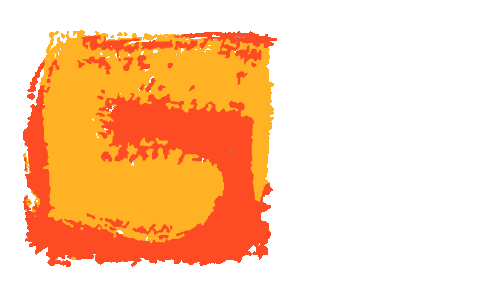research

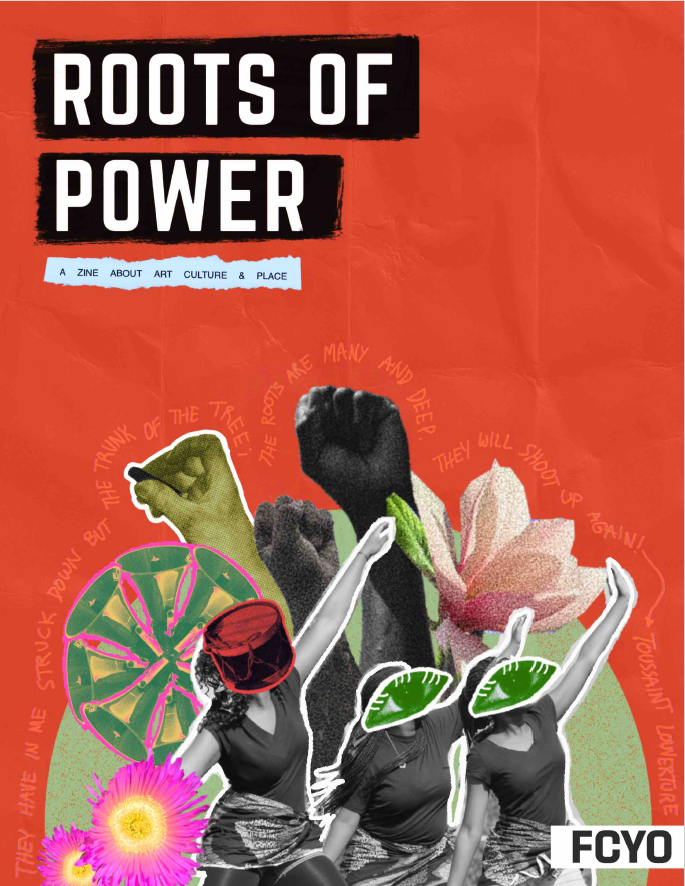
Roots of Power: A Zine About Art, Culture, and Place
We are each members of communities steeped in a sense of place. And we are each the inheritors of the create cultural practices emerging from the histories of resistance and resilience of that place. Our history, our art, our culture, our place - they are where we organize from, and what we organize for. This is a zine about art, culture, and place. It's also about how we organize for power. All art, poetry, words, and works included in this zine were contributed by youth organizers at FCYO's Fall 2022 Convening.
research

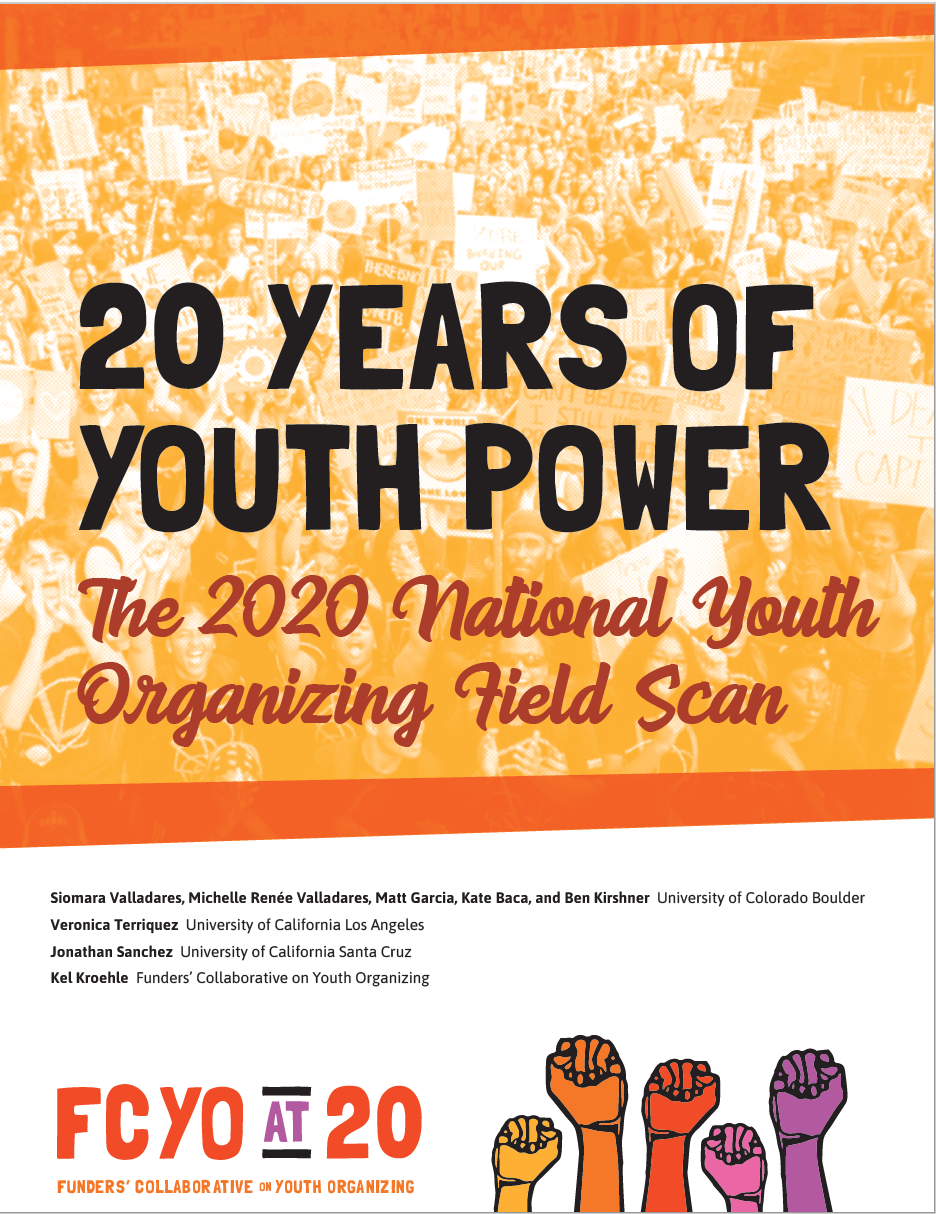
20 Years of Youth Power: The 2020 National Youth Organizing Field Scan
Our 2020 National Youth Organizing Field Scan: 20 Years of Youth Power is our largest and most comprehensive review of the youth organizing field to date! The scan identifies and offers an analysis of trends, opportunities, and challenges over 20 years and how the field has grown over time.
research

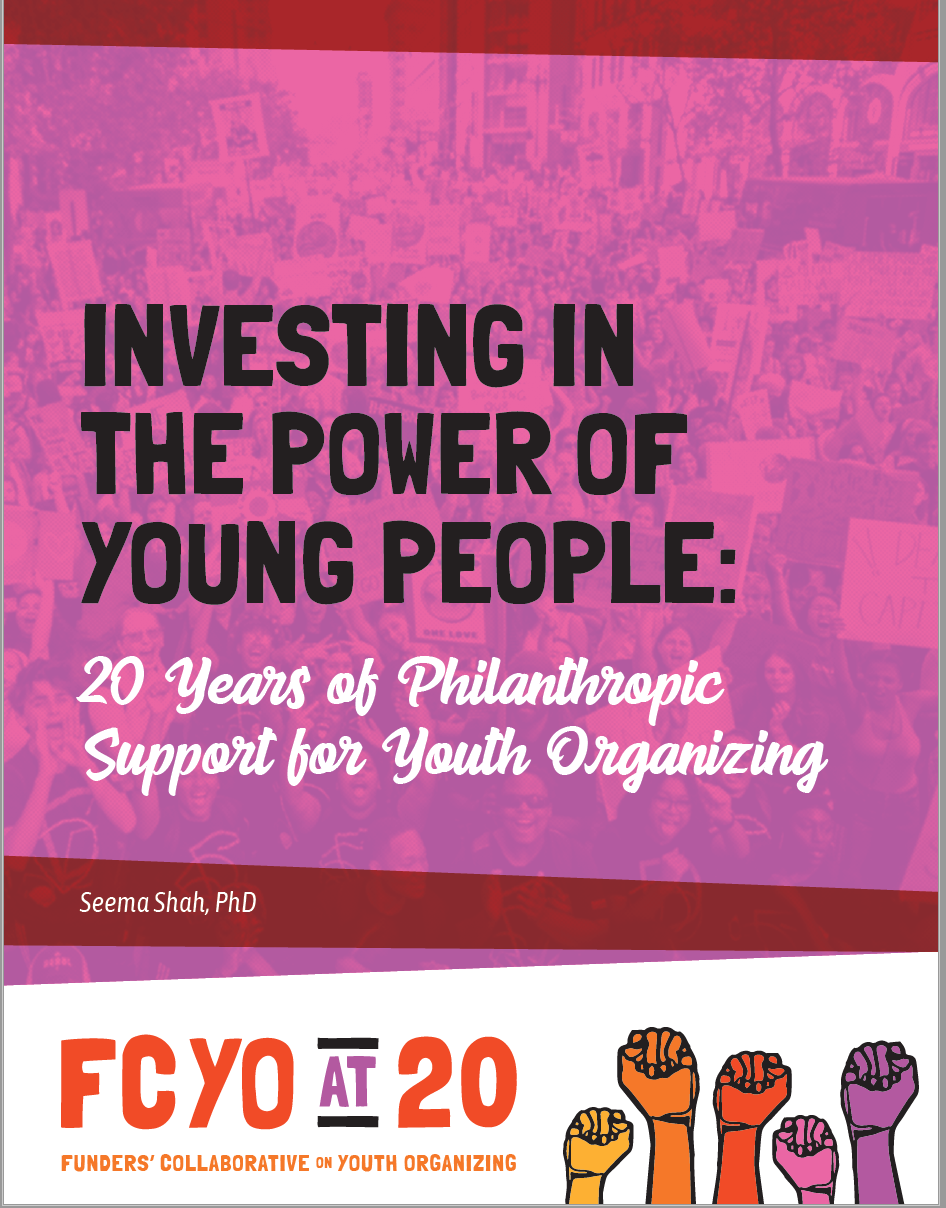
FCYO'S 2020 Funder Scan: Investing in the Power of Young People
FCYO is excited to announce the release of our 2020 Funder Scan Investing in the Power of Young People: 20 Years of Philanthropic Support for Youth Organizing, which evaluates the critical role philanthropy has played in shoring up a youth organizing field poised to meet the multiple challenges of this moment. This report is part of FCYO’s 2020 National Youth Organizing Field Scan, a series of four reports that together offer an in-depth look into a field that has grown in significant ways over the last two decades.
research

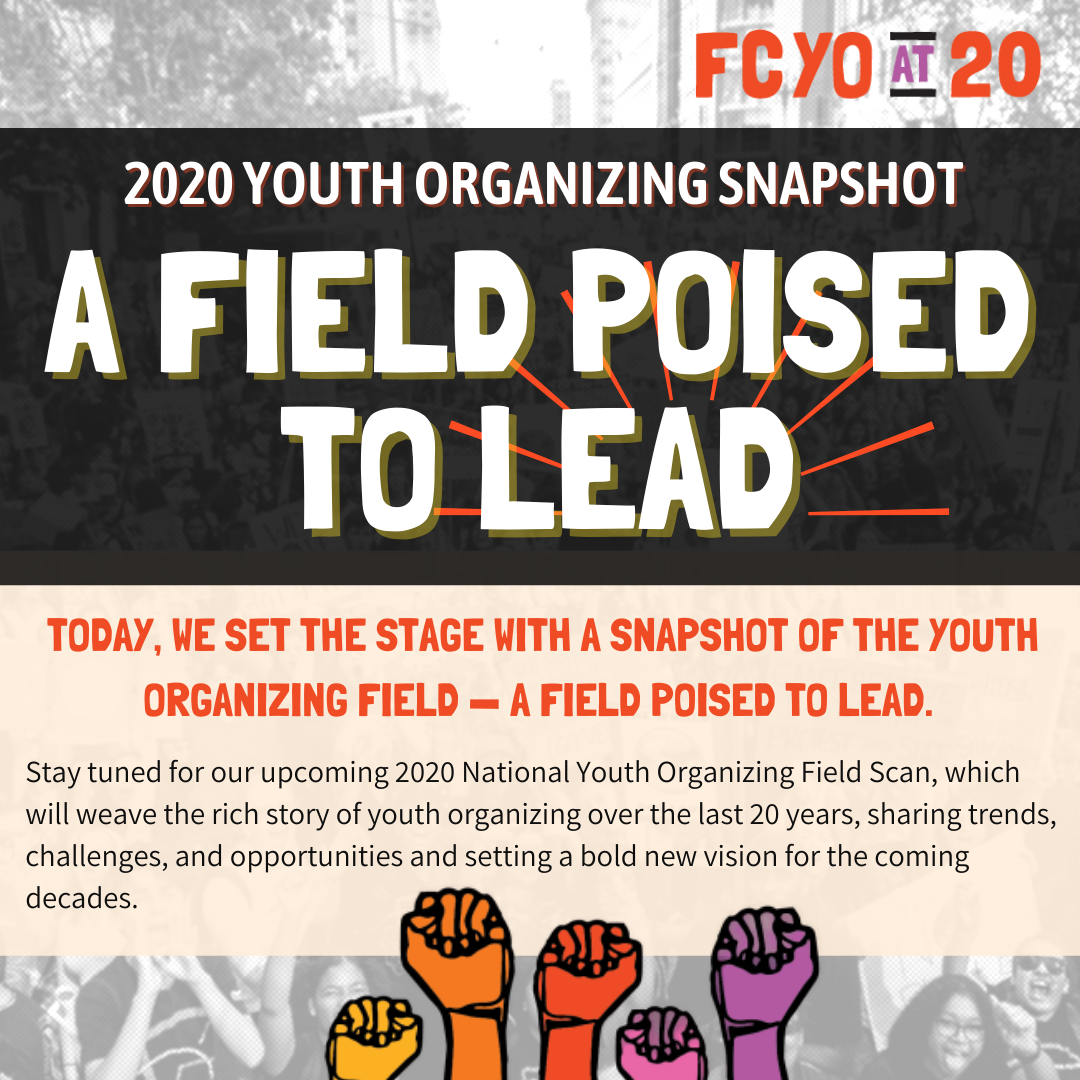
2020 Youth Organizing Snapshot: A Field Poised to Lead
2020 is truly a landmark year for youth organizing. Yet this work is not new. Throughout history, young people - in particular young people of color, working class youth, girls, and queer and trans youth - have time and again acted as the engine propelling our most transformative movements for environmental, economic, immigrant, gender, and racial justice. Today, we set the stage with a snapshot of the youth organizing field — a field poised to lead. Stay tuned for our upcoming 2020 National Youth Organizing Field Scan, which will weave the rich story of youth organizing over the last 20 years, sharing trends, challenges, and opportunities and setting a bold new vision for the coming decades.
research

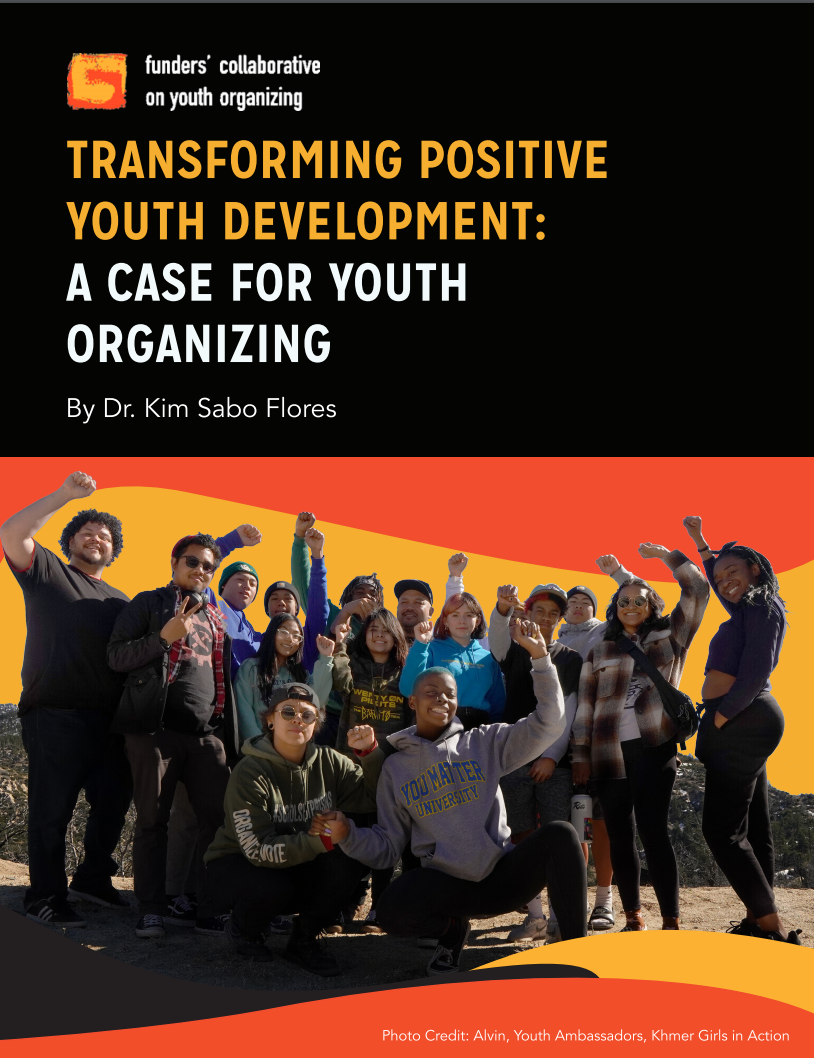
Transforming Positive Youth Development: A Case for Youth Organizing
FCYO is excited to announce the release of Transforming Positive Youth Development: A Case for Youth Organizing, a study of the unique contribution organizing plays in a young person’s development. Building off our Powerful Transformations capacity-building initiative, Dr. Kim Sabo-Flores of Algorhythm conducted a two-year inquiry into 500 young people’s experiences using rigorous pre- and post-test methods to compare the developmental outcomes of young people engaged in organizing with those engaged in more traditional youth development programs.
research

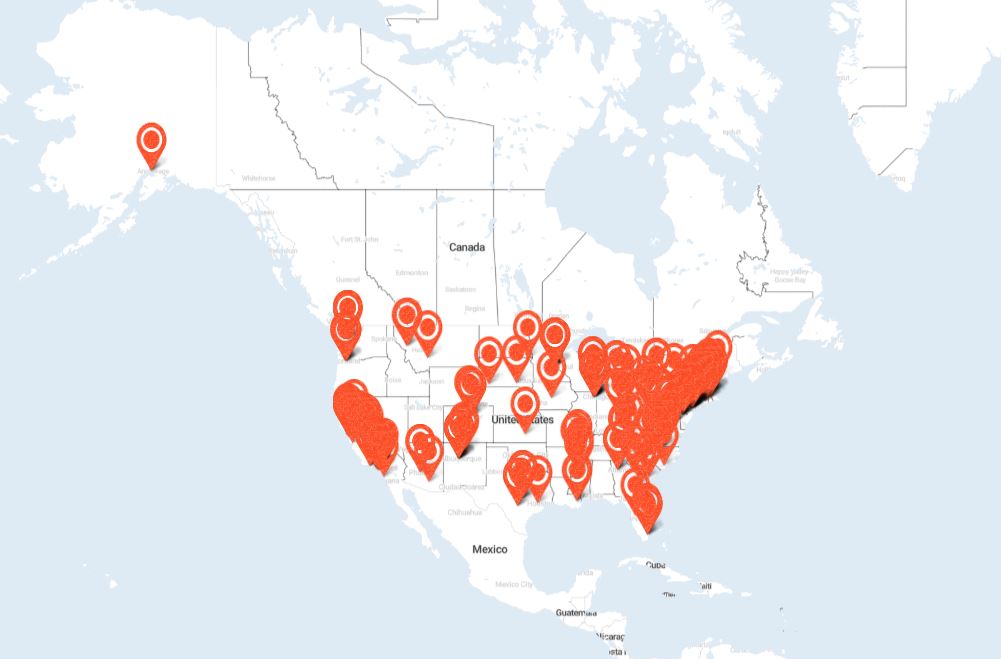
National Youth Organizing Field Scan 2020
The Funders’ Collaborative on Youth Organizing's (FCYO) is collecting information from youth organizing groups through a survey for a National 2020 Field Scan. The last field scan FCYO did was in 2013. 2020 will give us a chance to update that and take a longer view on the outcomes of the last 20 years. The field scan will identify and offer analysis of trends, opportunities and challenges over 20 years and how the field has grown over that time. This will also include a deeper dive into how key issues that youth organize around have changed, and the role of young people in moving issues on a national scale. These scans allow us to to improve our advocacy within philanthropy and increase resources for the great work that youth organizing groups do.
research

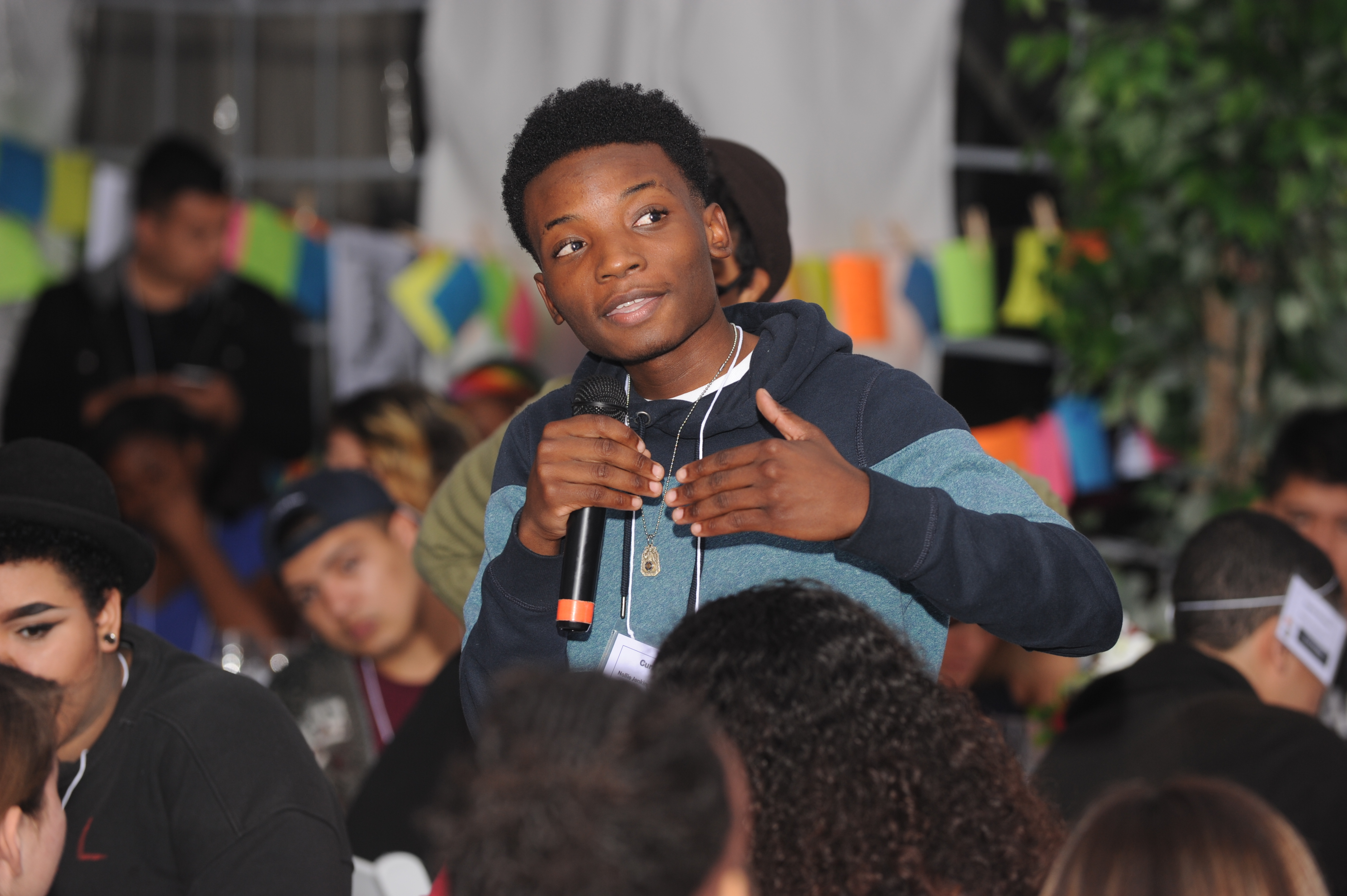
Transforming Young People and Communities: New Findings on the Impacts of Youth Organizing
Across the country, youth organizers have scored important policy victories, such as advocating for greater access to college prep curricula and introducing restorative justice models to replace punitive school discipline policies. As the field of youth organizing expands, a growing body of research is illuminating our understanding of youth organizing and the myriad ways in which participation in organizing shapes the lives of young people. Emerging research shows that involvement in youth organizing contributes to the social-emotional and academic development of young people in powerful ways, while also promoting their civic and community engagement.
research

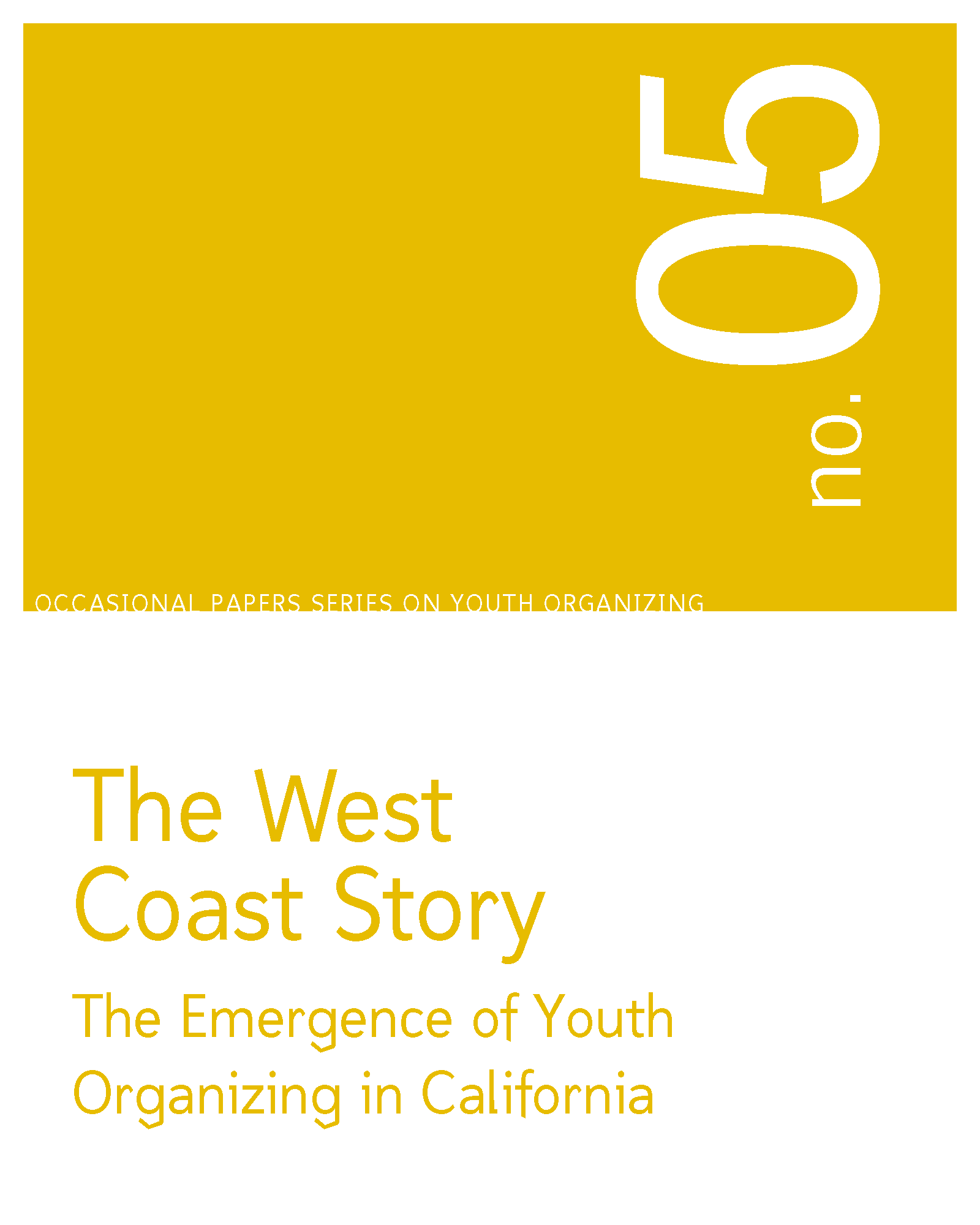
OPS 5 - The West Coast Story: The Emergence of Youth Organizing in California
Published in 2004, OPS 5 analyzes the emergence and practice of youth organizing amidst California's bellwether politics and culture, and the immense geopolitical and cultural diversity of its subregions - Los Angeles, San Diego, the San Francisco Bay Area, and the Central Valley. OPS 5 was one of five installments that detailed the development of youth organizing in specific regions across the United States. Whether a “region” has a coherent identity is debatable. Still, this place-based dissection brings us closer to work that by definition is grounded in and led by communities.
research

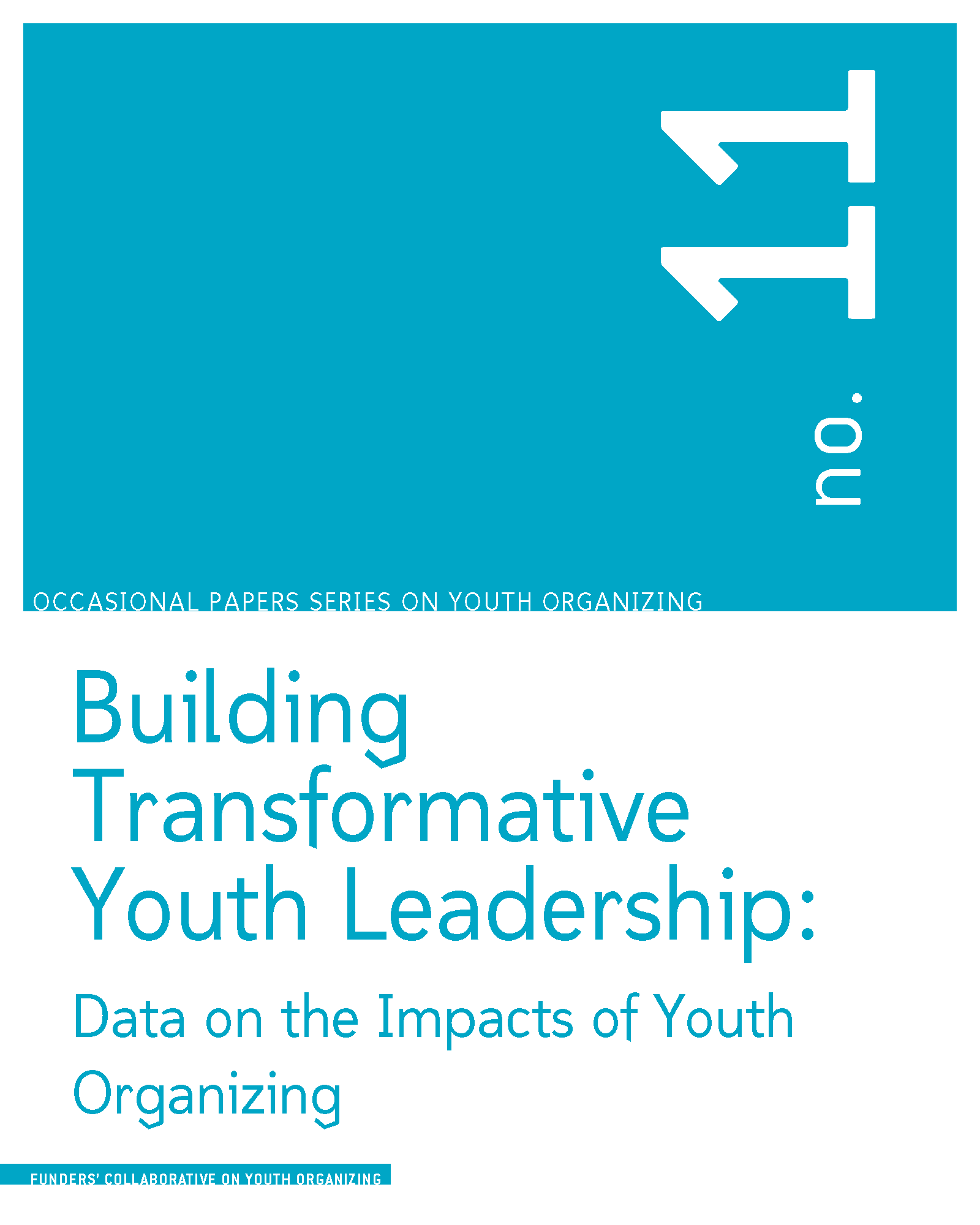
OPS 11 - Building Transformative Leadership: Data on the Impacts of Youth Organizing
Published in May, 2011, OPS 11 illustrates the power that youth organizing, specifically organizing for education reform, has on young people – from increasing self-efficacy and strengthening leadership capacity, to building collective power, academic motivation, and future commitment to civic engagement. Drawing on six years of data, OPS 11 expanded on OPS 10, “Building a Pipeline for Justice”, which underscored the importance of developing a pathway for young people to sustain the social justice movement.
research

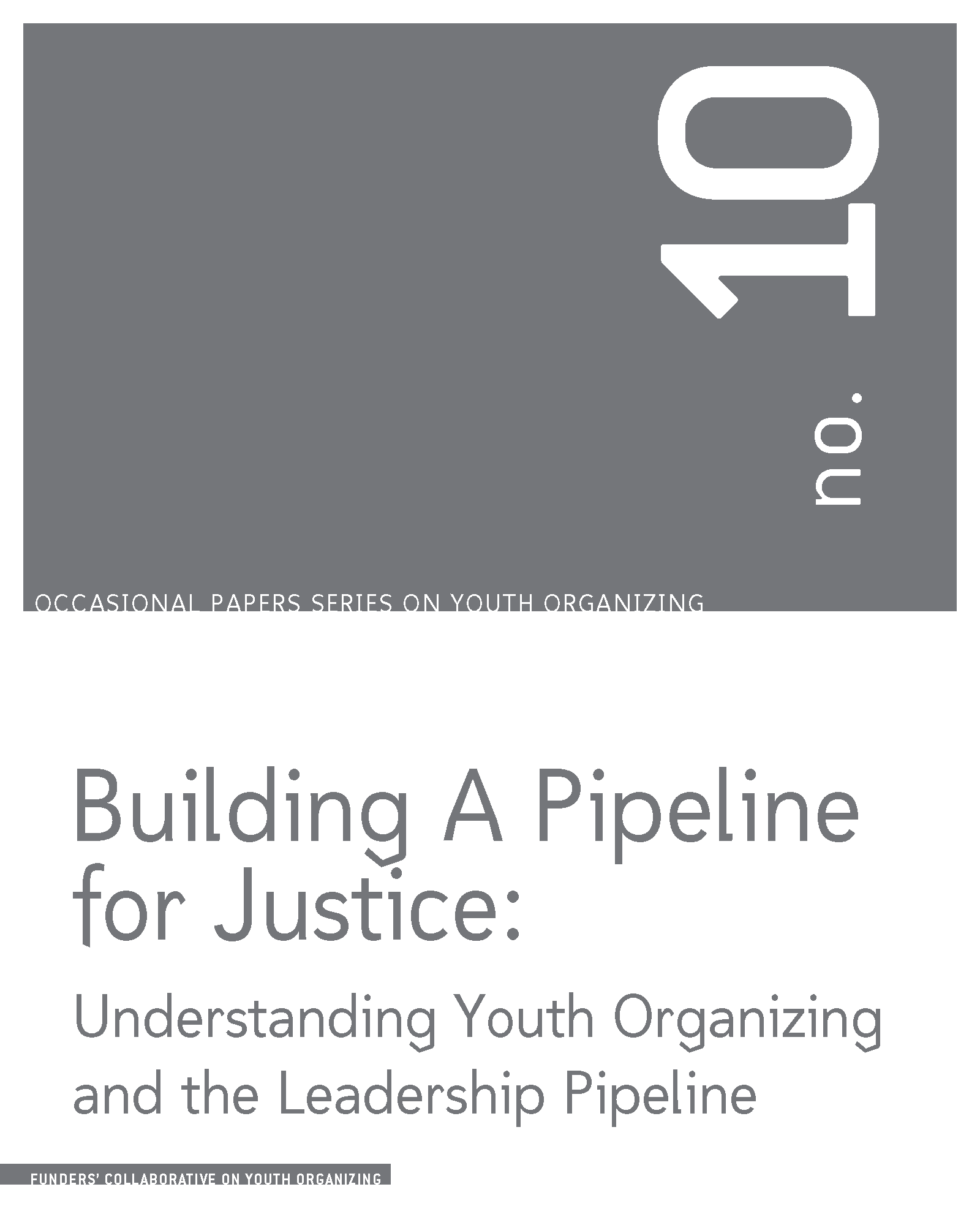
OPS 10 - Building a Pipeline for Justice: Understanding Youth Organizing and the Leadership Pipeline
Published in 2010, OPS 10 aims to capture the challenges and opportunities of building a Leadership Pipeline, with youth organizing as a critical starting point, for a more robust and sustainable social justice movement. Written by Prof. Shawn Ginright, this paper makes the strong case that young people of color are key stakeholders in broader movement-building efforts.
